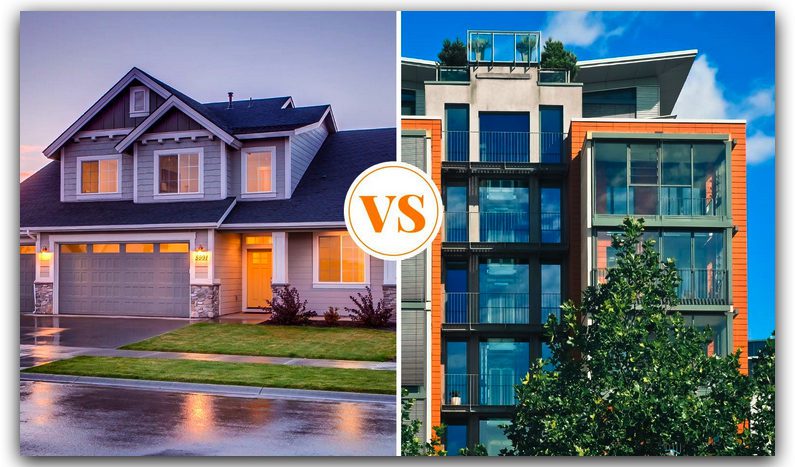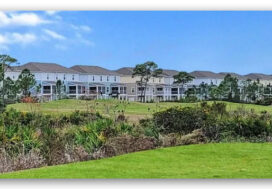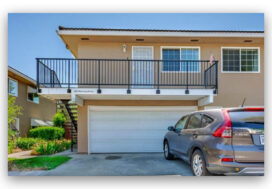Pro: You get more house and more neighborhood for the money. In this area the value is in the land—in many cases, the structure/house may be worth less. In our area, the typical condo or townhouse is more modern because it’s usually twenty-to-thirty years newer than the typical single-family home in this area. A townhouse from the 1980s may well offer the 2.5 baths, high ceilings and other aspects of modern living you’ve come to expect, yet sell for the same price as a house only a minimalist could have loved even when it was new back in the 1950’s.
Con: You’re placing yourself under another layer of government, one with rules that remove some of the homeowner rights most people take for granted. For example, you can’t modify the exterior of your home, for example, paint color without the approval of the Homeowner’s Association. There’s a very good reason for these extra restrictions: most people aren’t used to living this close to each other or to sharing common facilities, and they may need guidance.
Pro: Someone else does much of, or perhaps all, the exterior maintenance. This is great if you’re focused more on work or fun than on maintaining your place. How much maintenance the association does depends on their CC&Rs (Conditions, Covenants & Restrictions). Never assume that they maintain something—always read the maintenance obligations section of the CC&Rs.
Con: Someone else does much of, or perhaps all, the exterior maintenance. But, didn’t I just list that as a pro? Yes, but that “someone else” is an HOA run by a Board of Directors comprised of people just like you: generally well-meaning but with little or no knowledge of facilities management. The Board may have the assistance of professional management, but the level of professionalism in “professional management” varies by management company and even within the company. Homeowners not on the Board may have input in decision-making but won’t have authority to make decisions. So if the Board thinks certain projects will be done, then they will be done, even if you don’t agree.
Pro that everyone thinks is a con: You pay homeowner’s dues. How good is that? It’s a forced savings plan, a form of dollar-cost averaging. You’ll have to set aside money anyway to maintain your home. Some people don’t, of course, but they pay for it when they sell. Either they get less for their house, or they have to correct years of deferred maintenance in a few weeks (how about the $25,000 roof, $5,000 for a heating unit, $8,000 for a sewer lateral replacement to name a few?). Playing catch-up on maintenance is expensive for two reasons. First, repair costs go up every year, making it more expensive to fix something now than it was only a few years ago. Second, when something like a leaking roof isn’t fixed right away it causes more damage, which costs even more money to fix. But perhaps the best argument for maintenance dues is that homeowner’s associations can spread their costs over a number of households, so the cost for each unit owner is typically less than it would be for the owner of a single-family home.
Con: The close quarters of condo living is a real test of your patience and ability to live with other people. Some condo-owners think they’re living on forty acres in the middle of nowhere, and no one is going to tell them how to act. Just hope you don’t live next to one of these rebels without a cause. And if you do move in with the attitude that no HOA board is going to push you around, consider the condo owners who ended up paying the HOA’s $59,122.50 in legal fees because they insisted on installing “sandtone” colored windows instead of regulation dark brown…and the courts/judge made them paint their windows dark brown.
Value Myth that comes with an asterisk: Condos don’t hold their value as well as single-family homes. I’ve heard this so often that I have no doubt it’s true in most markets. It’s not necessarily true in this market and when it is, the explanation isn’t quite that simple. We have such a wide range of housing—from $300,000 condos to $1.5 million dollar condo/townhouses to $800,000 single-family to $25 million dollar estates—that it’s more useful to see the market not in terms of housing types but in terms of price ranges. Some condos and townhouses fall in the entry-level end of the market, currently anything selling in the low $500,000 or less, and their rate of appreciation seems to parallel that of single-family homes in that range (check out my stat graphs). That end of the market has generally seen good appreciation with far less volatility than the top end.
Some reasons for holding value: First, the high cost of single-family homes pushes a big part of the market into condos, and that large pool of potential buyers creates demand that supports prices. Second, the high cost of land means there’s a real shortage of newer (or re-built) yet affordable single-family homes, so if you’re on a budget but want a home that is built within the past 30 years, you’re looking at condo/townhouses. Third, it’s much harder to overbuild townhouse/condos here, where the wide-open spaces disappeared thirty or forty years ago, than in other areas. And fourth, the work-hard-play-hard lifestyle common to Silicon Valley doesn’t leave much time for the usual homeowner maintenance chores.
What Does This All Mean? Should you buy a Condo or Single Family (SFR) home? Depends are your needs and wants, what stage you are in life, do you plan to first buy a condo/townhouse and then a single family home? Are you just too busy to spend time in the garden and maintenance or is that your hobby? What does your budget look like? Call me for more ideas/questions on what will be part of your decision-making process.





